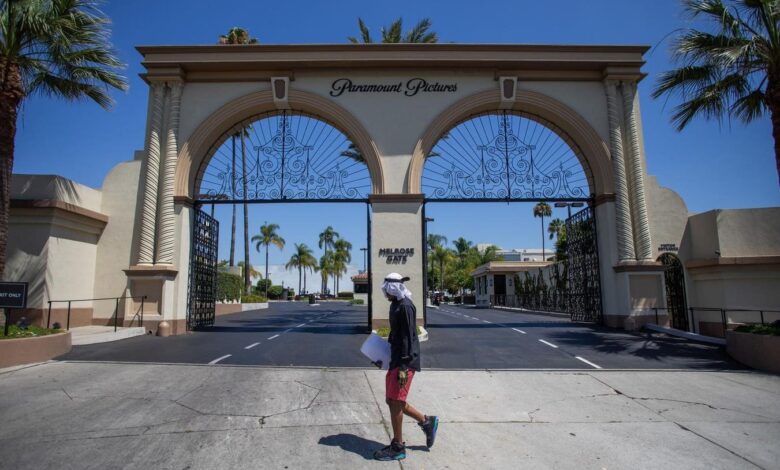Skydance Deal Done, What Next For Paramount Global?

📝 usncan Note: Skydance Deal Done, What Next For Paramount Global?
Disclaimer: This content has been prepared based on currently trending topics to increase your awareness.
(Photo by Apu Gomes/Getty Images)
It’s been a long, brutal, wildly partisan, and wholly unlikely slog to get here, but Shari Redstone finally gets to preserve her family fortune by selling her patrimony, the media empire laboriously assembled by father Sumner, for about $8.5 billion and goodness knows how much cortisol and angst.
So now what? Where does Skydance Entertainment, the media company assembled by mogul-in-the-making David Ellison, scion of another wealthy industry pioneer, take Paramount Global now that the Federal Communications Commission has finally signed off on the deal, clearing the way for it to close on Aug. 7?
Some big moves already have happened, just in the past several days:
- Amid great dismay from the left side of the political dial, Stephen Colbert’s broadcast-leading but money-losing late-night show was told it will expire next May, alongside Colbert’s $20 million contract. Late-night talk shows have become an endangered species, as younger audiences tap YouTube and social media for highlights, and advertising revenue continues to decline. But Colbert is also a pointed critic of the Trump Administration, calling Redstone’s $16 million settlement of a specious Trump lawsuit against 60 Minutes “a big fat bribe” two days before the cancellation announcement.
- A $1.5 billion deal to secure three seasons of new South Park episodes and 26 past seasons was announced, in time for a scorchingly satirical take on the president’s penis, satanic bedfellows, an AI-generated Trump wandering nude in the desert, and much else. The Sermon on the ‘Mount episode also represented, amid the resulting furor on the right, a canny announcement that the collected calumnies of creators Trey Parker and Matt Stone are finally available on the Paramount Plus streaming service, after years licensed on Warner Bros. Discovery’s HBO Max. Its debut the week the FCC approved the sale also may have sent reassuring messages to the left-leaning side of the company’s employees, creative partners and audiences.
- Tanya Simon was made permanent head of politically battered CBS stalwart 60 Minutes, as staff had recently petitioned to happen. Simon was interim head after Bill Owens resigned as executive producer, and has been with CBS nearly three decades. As an aside, Simon’s father, Bob, was a CBS foreign correspondent and 60 Minutes regular who accreted 27 Emmys, four Peabody awards and a DuPont over 47 years.
- Announced plans to spend $1.5 billion beefing up local broadcast news operations, possibly part of commitments Ellison made to FCC Chairman Brendan Carr as part of the sale approval. Local news (and weather, traffic and sports) remains one of the few reasons many people still tune into broadcast. Paramount’s CBS has 15 owned-and-operated stations in larger markets such as New York and Los Angeles, and more than 200 other independently owned affiliates.
- Acquired rights to football and men’s basketball games for the revived Pac-12 college athletic conference, as well as the conference’s championships in both sports. The reconstituted conference is a pale shadow of its former glory a few years back, but more live sports has been a winning strategy for all the companies trying to remain relevant to a large chunk of potential viewers.
Up next: widespread whacking. Ellison’s deal proposal called for a merger of Skydance and Paramount that would enable a massive $2 billion in cost savings.
Likely targets include those former Viacom networks that Sumner Redstone turned into a 1990s cable powerhouse, financing his subsequent acquisitions of the storied Paramount Pictures studio and lot, and CBS broadcast operations.
These days, however, cord-cutting has turned much of cable into dead networks walking.
Comcast’s NBCUniversal has already spun off nearly all its cable operations other than Bravo into a standalone company called Versant. Warner Bros. Discovery has reorganized in similar fashion, and announced plans to split off its Global Networks unit into a separate company under CFO Gunnar Wiedenfels, along with a boatload of debt and a 20-percent stake in the remaining Streaming & Studios unit that it’s supposed to sell within a year of the split.
LightShed Partners analysts led by Richard Greenfield posted a quick note last week, revisiting the 2013 Netflix prediction of linear TV’s eventual demise, suggesting that Colbert’s imminent departure is one of those big signs that it’s actually starting to happen, except in live news and sports.
“Over the next few years, we expect virtually all linear TV programming outside of sports and news to shift to catalog content and reruns of what appeared on streaming; there simply will not be a business model to support original entertainment programming on linear TV,” the LightShed note reads. “That will lead consumers to seek increasingly smaller (skinnier) bundles of channels focused on broadcast networks, sports channels, and news channels. Makes you wonder why any investor would want to own the plethora of coming standalone cable network companies.”
Yes, indeed. It seems highly likely that Paramount holdings such as Comedy Central, MTV, and Nickelodeon depart the mothership in similar fashion, perhaps in a Titanic-sized merger of sinking ships with Versant and/or Global Networks. Ellison has proved a savvy enough operator that he likely wouldn’t lead or finance that sort of rollup, but perhaps he could use a spinoff to lighten debt loads and position Paramount Global for a media future where cable delivery matters less and less.
And while Ellison has committed to beefing up local news operations, what’s he going to do with CBS News? Both its morning show and its evening news are mired in third place, with on-air talent that, at least traditionally, enjoyed extremely generous contracts. Will CBS News do more (or, more likely, less) with less? Numerous notable on-air personalities have departed recently across all the broadcast networks, including CBS News’ Nora O’Donnell and NBC’s Hoda Kotb. Expect more of that to continue.
The Paramount Studios lot has long been home for both film and TV production, but in truth, has often used as a site for various conferences, food festivals and the like, suggesting its facilities haven’t been fully exploited for many years. Does Ellison amp up the film-production spending, at a time when movie theaters in the United States are still generating subsequently lower revenues than they did before the pandemic (that was one of Redstone’s challenges; her family’s National Amusements, which has had a controlling share of Paramount, also owns hundreds of underperforming theaters)
Skydance will bring some areas of focus that haven’t been part of any corner of Paramount lately, including a videogame unit and feature animation (though South Park’s creators pungently reminded everyone last week they can still dish out the satire, even if it will be available mostly on streaming going forward).
The changes ahead are likely to be deep and painful, particularly amid a deep recession afflicting the entertainment business in Hollywood, in whose literal physical neighborhood the Paramount lot sits. But perhaps the relatively young and tech-savvy Ellison, a hugely successful movie producer (recent Mission: Impossible movies and much else) and son of one of the world’s handful of richest people, is just the person to take a century-old movie studio into this uncertain future. Plenty of work lies ahead.




